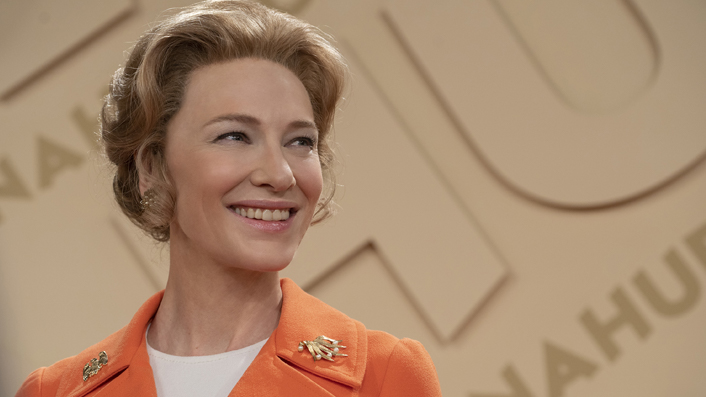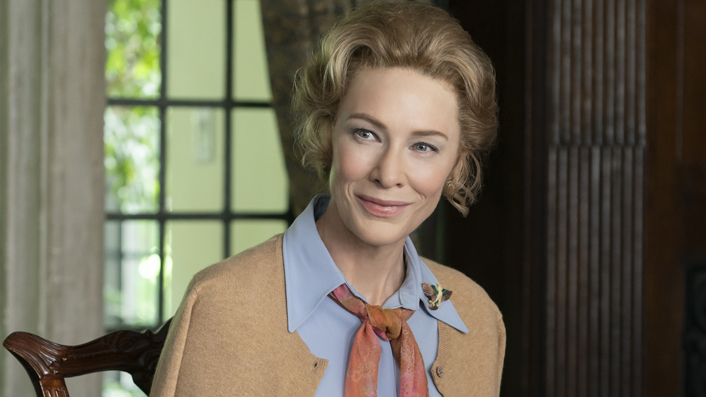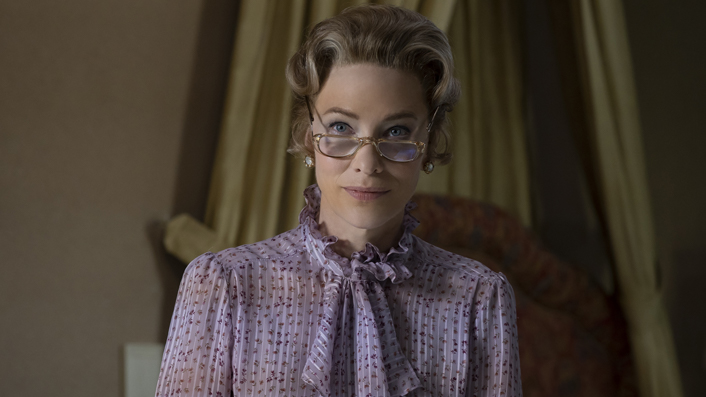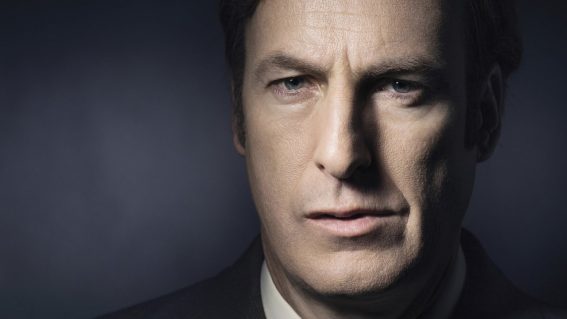Cate Blanchett excels in Mrs. America, examining 1970s female-led politics
A fascinating and frank examination of the female-led political landscape of 1970s America.

Cate Blanchett plays opponent of the women’s lib movement, uber-conservative activist Phyllis Schlafly, in Mrs. America, streaming on Neon from April 16. As Katie Parker explains, the show not only tells Schlafly’s story, but those of women like Gloria Steinem (Rose Byrne) who Schlafy opposed, bringing the era and subject matter to life.
Just a couple of years ago, Ruth Bader Ginsburg was almost inescapable in pop culture. With Donald Trump new in office and US politics facing an apparently unforeseen u-turn towards an uncertain and likely misogynistic future, democrats (and Hollywood) turned to the Supreme Court judge and women’s rights activist for inspiration.
With a documentary (RBG), a biopic (On the Basis of Sex), a voice cameo in The Lego Movie 2, and copious amounts of merch on offer, at 85 Justice Ginsberg became an unexpected hero of modern liberal feminism—and a symbol of hope in a seemingly hopeless era.
See also
* All new movies & series on Neon
* All new streaming movies & eries
* The best drama movies of last decade
Now, in 2020, the notorious RBG hangs out with Brett Kavanaugh on the reg, the US Democratic party is in crisis, an earth shattering plague has struck and hopelessness has taken on a fun new meaning… And in a post-#MeToo world, Hollywood has turned its attention instead toward an anti-hero of the women’s lib movement, uber-conservative activist Phyllis Schlafly, as the central figure of the nine-part FX miniseries Mrs. America. Starring Aussie icon Cate Blanchett (also an executive producer of the series) and featuring an all-star ensemble cast, this is prestige TV in its purest form, baby—and an unexpectedly entertaining examination of a series of events that remain unresolved to this day.

For those unfamiliar (I wasn’t really either), Phyllis Schlafly was a US political activist and author, famous for her staunchly conservative views towards issues like abortion, feminism, same-sex marriage and the family unit, spending a lifetime lobbying those views until her death in 2016.
Yet while Schlafly is remembered primarily as an uptight, moralistic, Reaganite killjoy, Mrs. America seeks to find the human woman beneath the myth—and when we first meet her, Schlafly seems as in need of women’s liberation as anyone.
A wife, mother and budding political star, we observe her fiery ambition and clear dislike of the domestic tasks expected of her; we see her crestfallen when male company won’t take her thoughts and opinions seriously; and most disturbingly, we bear witness to her reluctant acquiescence to the unwanted carnal advances of her piggish husband (John Slattery).
Yet, in this first episode of Mrs. America, so too does Schlafly discover the project that will make her a conservative icon: her ultimately successful campaign against the movement to ratify the Equal Rights Amendment. That amendment, which states that women cannot be deprived of rights on the basis of sex, is still being fought for today.

Schlafly—who is introduced here as a basically decent, empathetic person and kind ally to her female peers—dedicated her life to doggedly setting back the women’s rights movement. But why? It is this question that is at the heart of Mrs. America and one that, thankfully, is posed with careful nuance, as Schlafly’s cynicism gradually overtakes whatever good faith she once had.
In some ways it is a story we have seen many times before: power and ambition corrupting someone otherwise well-intentioned and unassuming. Yet, as Schlafly, Blanchett is more complicated than this. From her Stepford wife style, to her sly charm, to her subtle yet perfectly studied mannerisms, it is a predictably immaculate performance and one that never quite gives away Schlafly’s hand. Veering dangerously close to sympathetic one moment, the next she seems faintly monstrous—and in doing so toes the line between antihero and villain with the grace of Tony Soprano.
If a show about an ultra-conservative anti-hero sounds like a bitter pill to swallow, however, then never fear—Mrs. America isn’t just about Schlafly. With the series frequently digressing to the women who she opposed (the women trying to push the ERA through), Mrs. America also encompasses a fascinating and frank examination of the female-led political landscape of 1970’s America.
Following real-life political figures like Democratic congresswoman Bella Abzug (Margo Martindale), presidential candidate Shirley Chisholm (Uzo Aduba), pro-ERA Republican Jill Ruckelshaus (Elizabeth Banks), Feminine Mystique author Betty Friedan (Tracey Ullman), and of course Gloria Steinem (a transcendent, perfectly cast Rose Byrne), Mrs. America even dedicates whole episodes to some of Schlafly’s rivals. In doing so, the era itself is brought to life and Schlafly’s regressive bubble thrown into sharp relief. The world here feels real, the cause urgent—which given what is happening now, is no mean feat.

When Mrs. America went into production, the world into which it would be released could hardly have been predicted and, with the world now facing an economic crisis like never before, it would be forgivable if the politically-charged subject matter didn’t quite land like it might have in the time before COVID-19.
Yet while the impact is perhaps different, it is not dulled—and, in fact, at a time when so many people are being radicalised to reject the dominant economic and political power structures, in many ways Mrs. America’s absorbing critique of a damaging, retrograde legacy has only grown more potent.
As the Democratic nomination process that precedes this year’s US presidential election grows ever more absurd (and the prospect of that election actually taking place even more so), and the outcomes of the #MeToo movement ever more disappointing, there has never been a better time to consider the motives and machinations of the people who have created the world we live in today—and why people like Phyllis Schlafly gain the traction that they do.
Where the many odes to Justice Ginsburg over the past few years have tended towards a smugly hollow moral high ground, Mrs. America does not claim to have all the answers. Schlafly remains an enigma, hell-bent on shooting herself and her peers in the foot while Gloria Steinem parties and looks cool. But as the world faces yet another formative historical juncture, it is a deeply engaging and somehow pleasantly diverting look at a pivotal moment in time—one from which we seemingly still have so much to learn.






















